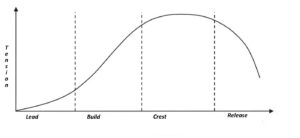I don’t often write practical heart skills articles about how to cope with feeling isolated at work, but the recent #MeToo news motivated me to write this one.
#MeToo self-isolation
One of the unintended consequences of the #MeToo Movement is the self-imposed isolation of some men from their women co-workers. If it’s possible to be too politically correct, this has been called “the Pence Effect” (video nearby).
This is a huge negative trade-off for productivity, but it is safer than being accused of anything inappropriate. Smart women have managed male aggression well for eons, and they continue to do so now, but all this self-imposed isolation – we used to call such things “healthy boundaries” is taking a toll.
Whether you’re the one coping or the one charged with making a difference in your culture, this article is for you.
The real cost of isolation
Some employees work well and happily in isolation. You just leave them alone and they produce great results! This article isn’t about them. Instead, we are dealing here with the un-chosen isolation that can happen in an office: the chronic sleight that keeps some workers at a distance well away from the inner circle and perhaps just within sight of the outer one.
Because a team can only work as well as its least-effective member, and the whole team pays a price if one of its members is intentionally and consistently isolated. This makes it more expensive to operate the entire enterprise, which pinches profits and makes C-level people antsy and mid-level managers intolerable.
That’s the corporate cost of isolation. But there’s also a human cost.

Isolation feels bad. Bad feeling is hard to turn into good action so there’s the productivity hit. But we humans don’t deal well with feeling chronically bad. When there’s no repair possible, we eventually wear out, emotionally speaking. The human cost to one who’s feeling isolated, therefore, is tragic: susceptible to depression, distress, and anxiety at a level far beyond the norm.
Then there’s the price paid by those who do the isolating. Even a small meanness practiced over and over doesn’t do anything good for the one being mean. Meanness as a team event just multiplies the negativity, perhaps exponentially.
If you work in a culture that permits such behavior and want to change your own life for the better, start by finding employment in a culture that doesn’t thrive on costly human isolation. We spend so much of our lives at work! We deserve a supportive, productive, connected experience there.
If your responsibilities include building strong, integrated teams, and any of your team members might be isolated, keep reading.
Make the connection
What a cliché! Everything wants to be connected these days…but without the slightest hint of a #MeToo infraction. How can any humans relate without fear of suspicion? Sadly we’ve lost the talents we used to have for that. No, it was worse than losing them; we actually booted them out of society altogether. Free love and the sexual revolution, remember? “Anything Goes” goes back a long way further than that, though. Co-workers have co-worked well for a long, long, time and but for the Age of Liberation, we would still know how.
To make a respectful connection demands us to practice respect. There’s just no other way. With practice, any frat boy or country bumpkin can get good at it. People who talk about honor and humility but don’t understand how to do either one need to learn how and the skills aren’t hard.

The idea in formerly-polite society – think pre-Mad Men – was that established social boundaries could be negotiated using practical skills we used to call “etiquette.” The rules could be broken, of course, but only at a cost both parties agreed to and accepted in advance.
Etiquette was formerly the key to making durable connections that were socially appropriate within the mores of the time. Until it wasn’t. If etiquette is too old-fashioned for you, consider this Fortune Knowledge Group/Gyro study which measured the effects of practices like respect and gratitude on corporate cultures. No surprise: the more honorable cultures were also the most successful.
Also, I’ve written a book about this. The cover is nearby.
That isolated feeling: what’s in it?
FOMO (fear of missing out) drives us quite a bit these days. In the office, FOMO tempts us to try to fit in by attending useless optional meetings, chasing loose ends, wasting time. If the alternative is chronic isolation, we give in to FOMO because anything is better than sitting all alone in the last cube of the row for hours doing nothing important.
Fear of being passed over is also part of that isolation. Fear of your work going unnoticed and unappreciated. Fear fear fear. Who needs that when there’s work to do? Not you, not your team, not your boss, not the organization.
But fear is part of what we feel when we feel isolated.
There’s a sadness, too. Sometimes it’s self-pity, sometimes it’s just unhappiness at being excluded (or being chronically too busy to join in meaningfully).

It’s possible to be angry at being isolated, too.
(We left the happy isolated people alone much earlier in this article and we’ll just let them be.)
So, that isolated feeling has it all: fear, sadness, anger. That’s 75% of The Big Four feelings; the only one missing is the joy to make it 100%. The point is that isolation has a wide bandwidth for feelings we don’t like that much, which is exactly why it feels so terrible.
And who needs that? Honestly: the best way to cope with such a regular inundation of the feelings no one really likes could be finding that new job! But we already covered that….
Coping with isolation at work: how?
For whatever reason, that new job isn’t coming through, and here you still are, isolated at work. How do you manage? What skills do you need to master to cope?
Do this first
First of all, give yourself a huge advantage over the competition and either practice some basic etiquette or the skills I call #MoreThanHuman. Learn how to act. Memorize what to say. This isn’t faking it until you make it! It’s building skills for powerful, proper interaction with human beings like you.
Practicing these skills enlivens the human spirit, too. The practice will set you apart, not as some kind of #MeToo Mike Pence clone, but as an authentic person who knows right from wrong in social situations, offers respect where it’s due, honors those who deserve praise and has the humility to walk their talk. The learning curve will also distract you and give you a productive outlet for the isolation you may feel.
Do this second
Practicing #MoreThanHuman skills is one part of climbing out of isolation. Coping is a different matter. Here’s how you can simultaneously improve your coping skills.
Being isolated erodes self-esteem, but practicing and mastering a new skill can be great for our self-esteem. Self-esteem is one great antidote for feelings of isolation. If you choose to practice being #MoreThanHuman, you’ll build skills that will prevent isolation in the future and power up self-esteem in the present. But there will still be times when isolation either creeps in or hits you in the face. Those times demand a special sort of intervention.

Feeling acute isolation can derail us from our self-esteem practice. Ironically, at those times, what you want is a few moments alone to recover your balance – to get back to the neutral place of readiness. How do you do that?
I use music to support myself as I feel the hurt deeply and let it go. If that makes sense, great! If you need more how-to, I’ve written an article with details here: How to Let Go of Anger at Work Without Scaring or Alienating Your Co-Workers.
Break the isolation by force?
Don’t be tempted to use your new skills to change the world! Please remember this means that somehow, you, single-handedly, believe you could change the culture of the organization you work in. Even if you are the CEO, That’s just not going to happen quickly, as noble as it sounds, and if you try, you may find your status quickly moves from “isolated” to “crucified,” even though doing it is honorable and necessary work for organizations that want to be sustainable!
There are other, less destructive ways, to break the isolation where you work. All of the other ways that actually work – all of them! – demand that you show others by your own example of how to shake off the feelings of isolation. None of the alternative ways require the use of force.
That is, let’s say you begin to offer consistent respect to every team member for weeks or even months. Far, far down the road from today you finally see the first, tiniest glimmer of reciprocation. The reciprocation means that it’s working, but it can take a long, long time to teach by example, especially if you’re the least visible person on the team. For whatever reason, if this kind of practice is your best alternative, please do it. Nothing may change except that you will become expert at showing authentic respect, and that needs to be enough for you.
Let’s review
#MeToo seems to be ruining our corporate ability to work together well, which is a shame in many ways, especially because it’s costly to humans and the organizations they work for when isolation is part of the culture.
There are effective and well-worn ways to make and sustain human connection in the workplace. They used to be called etiquette, although one updated how-to manual for professional, durable connectivity can be found in the book “More Than Human – the Value of Cultivating the Human Spirit in Your Organization.”
It’s possible to cope, but better for you and the team you work with if you transform that isolated feeling. It’s hard work and it takes time but the people skills you can learn in this situation will follow you for a lifetime and give you a huge competitive edge.
Finally, if you experience chronic isolation at work and would like a human coach, we’re here for you. (Of course, we are!) Reach out any time; glad to talk with you, encourage you, support your process. You are not alone.
Ready for a deeper dive? The Musimorphic Quest, a fully-mentored online active-learning experience will immerse you in practical ways to meet life’s challenges with skills you may not realize you already have. It’s not for everybody, but you are that unique individual who really resonates with with the power of music and wants to learn to wield it with skill, give it a try. The landing page is here.
How To Cope With Feeling Isolated At Work



